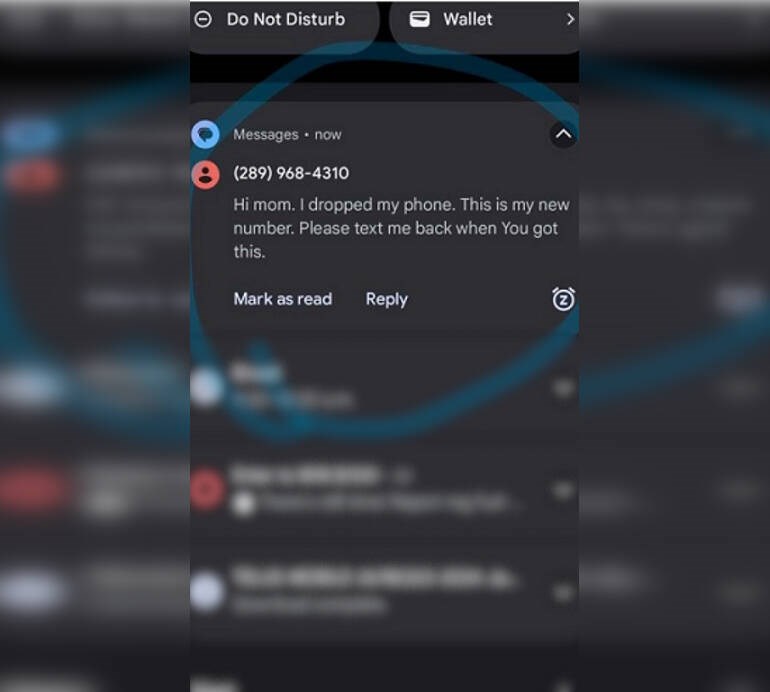If a strange number asking for money makes your cellphone bling, it can usually mean one thing.
Someone’s trying to scam you.
Since January, three people have handed over thousands of dollars to scammers claiming to be their children, according to North Vancouver RCMP.
The “broken phone scam” is a type of emergency scam where a potential victim receives text messages from a person claiming to be a loved one, saying they have dropped or damaged their phone, police said in a release. The suspect provides an alternate phone number to send a text message, and then asks for funds for repairs or to help pay a bill.
In just three incidents this year, North Vancouver RCMP say victims were defrauded of funds totalling $8,768. In these scams, the sender of the text messages claimed to be their daughter, and states that their phone was either lost or broken. The scammer then asked for an e-transfer to pay for a new phone or pay off a bill, and provides an email address for an e-transfer.
Police provided a partial screenshot of one of these exchanges, where a text from the number 289-968-4310 states, “Hi mom, I dropped my phone. This is my new number. Please text me back when You got this.”
In one of the incidents, the scammer asked for thousands of dollars on two occasions.
Protect your elder family members by alerting them to this type of scam, police say
If you receive a strange message from someone claiming to be a loved one, first try to contact that person with the phone number in your contact list, said Const. Mansoor Sahak, spokesperson for North Vancouver RCMP.
“If possible, call another family member to verify the source of the text,” he said.
“Always be suspicious of calls or messages that require immediate action and money for a family member in distress,” Sahak added. “Be careful what you post online, as scammers can easily get information about you on social media. Trust your instincts. Remember, if it feels wrong, it probably is a scam.”
Sahak said that scams like these typically come in waves, and this particular tactic is currently being used across multiple jurisdictions.
“They know this scam is working, so they will continue to use it,” he said.
Because scammers use third-party apps to spoof their numbers, it’s very difficult to track them down. The best way to protect your elder family members is to alert them ahead of time that this scam is being used, Sahak said.
If you’ve been victimized by this type of fraud, police encourage you to report it to them and contact the Canadian Anti-Fraud Centre at 1-888-495-8501.



